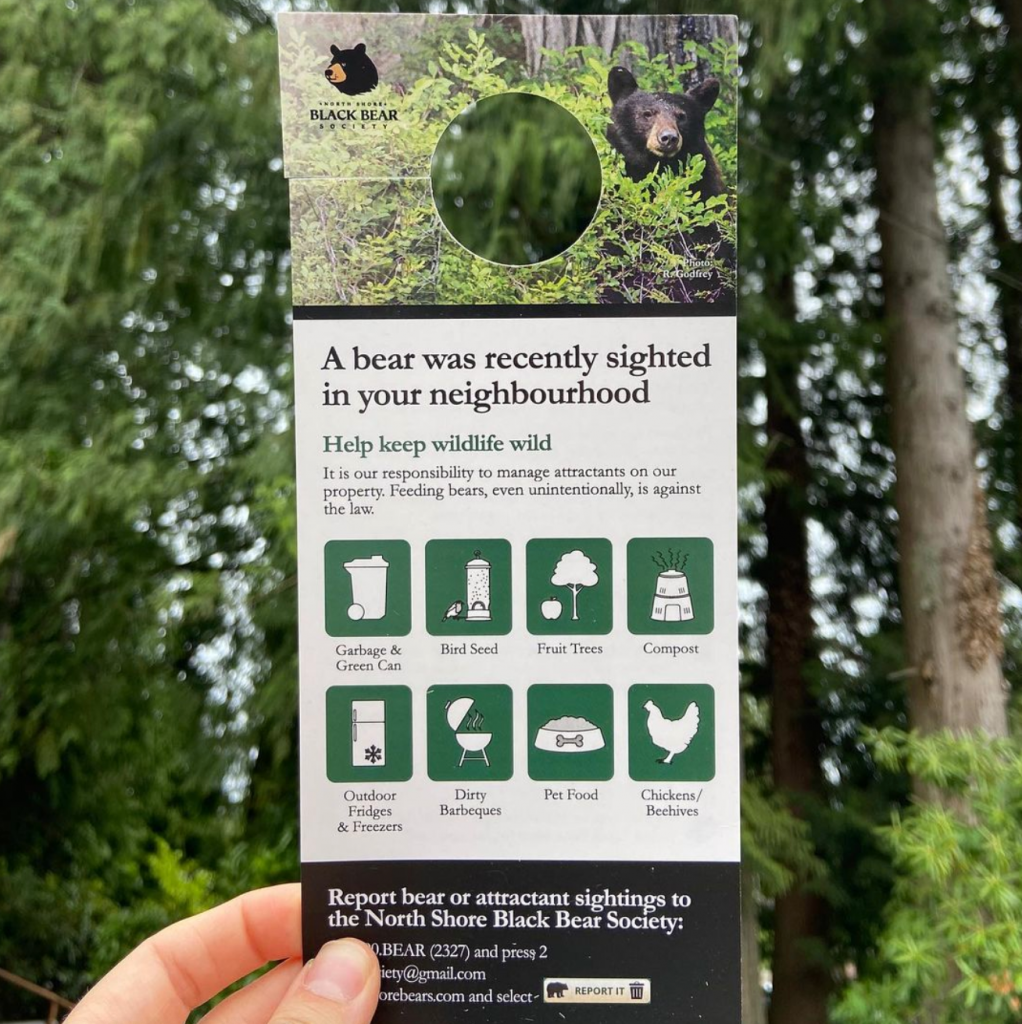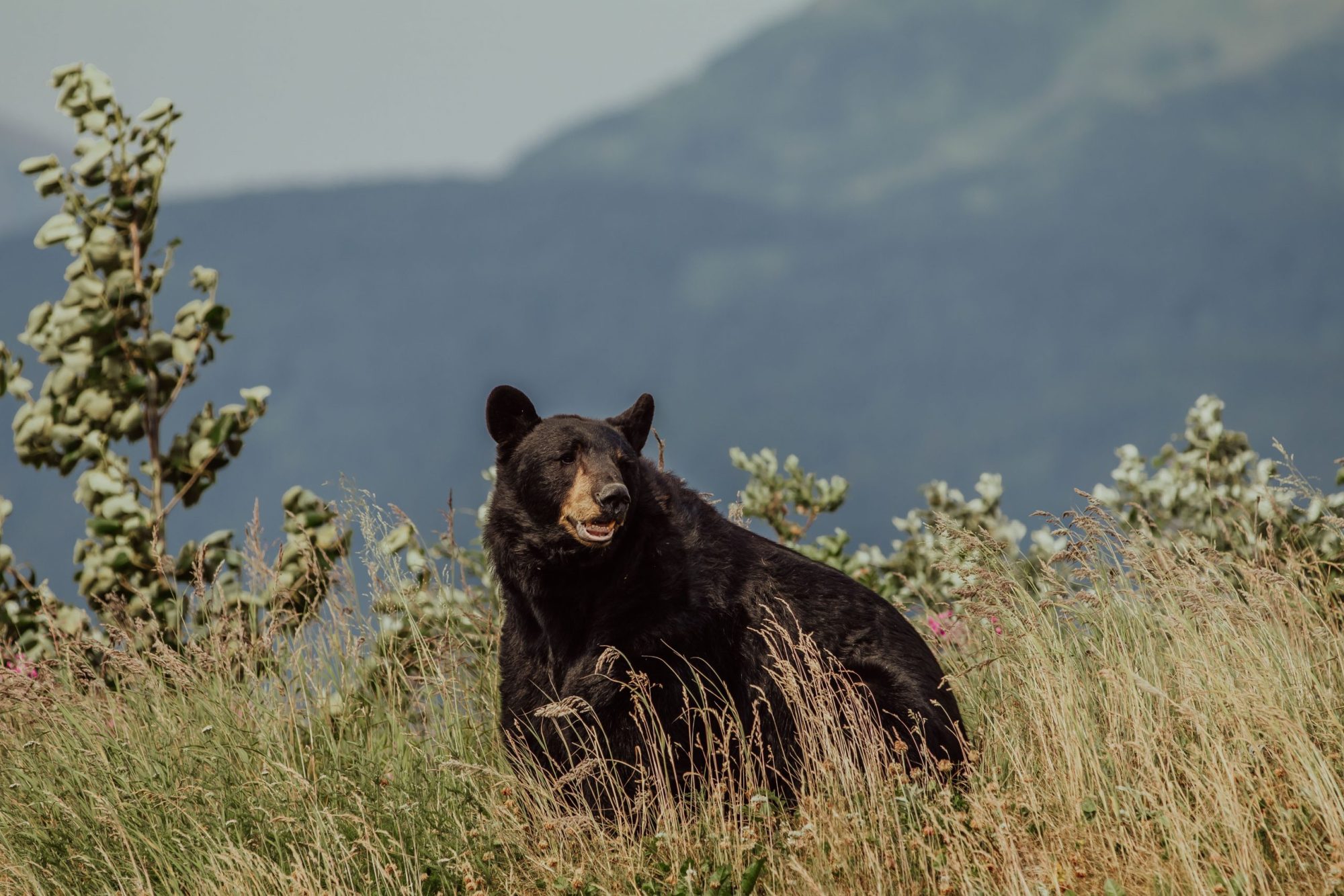BC stands for bear country, but the majority of Vancouver’s residents and tourists don’t understand the nature of black bears, why they venture into urban areas, and what happens when they are reported. A North Shore organization is urging Vancouver’s residents and visitors to approach co-existence differently, in order to get a different result: improved awareness, and a larger commitment to keeping bears safe by keeping them out of urban areas.
by Lauren Gargiulo
Despite the fact that bears are commonplace in BC, and that unprovoked bear attacks are exceedingly rare, many bear sightings in BC are met with human intervention. Conservation authorities are called in, and almost always, the bear is killed. While bear sightings should always be reported, communities need to recognize their responsibility in lowering bear sightings in urban areas.
Bears are being killed at an alarming rate, says BC’s North Shore Black Bear Society. The organization is on a mission to improve the province’s proactivity in keeping bears out of urban areas. Any kind of human intervention, including relocation, creates an opportunity for bears to be injured or killed. And the response does little to solve the issue: without improved effort by communities to secure food and ‘promote better co-existence’, black bears who are found and killed in residential areas will just be replaced by other black bears, venturing in to find food, and guided by the same attractants.
In June of 2021, BC Conservation Officers killed 75 black bears, and only one was relocated.
Most people reporting black bears think the bear will be tranquilized and relocated. The numbers say otherwise. Calls to B.C.’s conservation authorities are especially high during July to October, as warmer weather draws the bears to seek shade and water, and the incoming winter months prompt them to seek as much food as possible. In September of 2020, 546 calls were attended, out of 3683. Out of those calls, the conservation officers “destroyed” 121 black bears, where 25 were destroyed by “other”, making for a total of 146 black bears killed during September 2020 alone.
“This isn’t a case of bears becoming more violent or more aggressive.” Luci Cadman, president of the North Shore Black Bear Society says. “This is just a case of bears looking for food and easy, accessible places for them.”
Bear sightings should always be reported, but lowering a bear’s chance of human intervention is the much needed, proactive solution.
The North Shore Black Bear Society is fighting to protect black bears from deadly human intervention with a three-pronged approach. They monitor black bear activity in Vancouver neighbourhoods, and urge North Shore residents to call them immediately after calling their local conservation authority when they spot a bear. In doing so, the group will also respond and help to protect the bear from unnecessary harm. Then, the society canvasses neighbourhoods where bears are spotted to conduct outreach, and educate residents on how to manage attractants on their property. They continue to report on bear sightings, interventions, relocations, and killings, and launch awareness campaigns across the North Shore area to help B.C.ers understand how proactivity will protect bears and improve our co-existence.

If you see a black bear or have any questions or concerns about what to do if you do spot a black bear, NSBBS’s contact information can be found here on their website. Their Instagram also provides daily updates, you can follow them on Instagram @NorthShoreBlackBearSociety.
